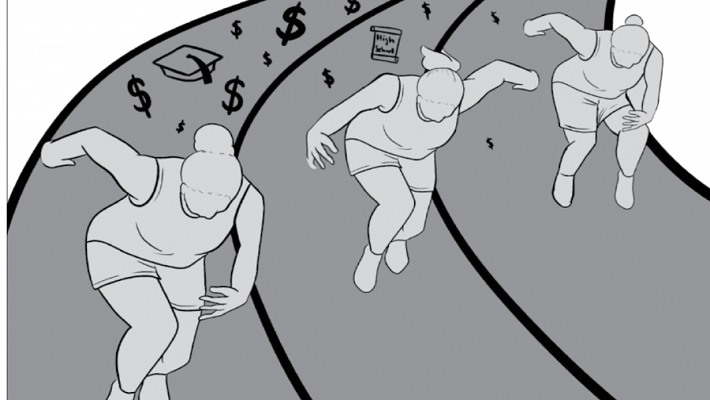
A common quote we hear is “Work hard and you will succeed in life “or “If you fail it means you didn’t want it bad enough” or “Don’t give excuses” and many more. People blindly associate hard work as the only parameter to success and nothing else matters. Unfortunately, that is a narcissistic statement one can make. An individual’s life is a complex one with a lot of things not in their control and they can’t just “hard work” their way out of it. The population of the world is more than 8 Billion and everyone obviously works to survive, a man working at a construction site works more than 16 hours a day so he can feed his family. He is working hard, yet why isn’t he successful? Why is he slaving away just so he can feed them for a day?
People need to understand that there are structures in society which disadvantage certain groups and at the same time works in favor of some groups. All men are not created equal, it is a harsh reality but one has to accept that equality is just a word, sometimes a myth. People have different starting lines on the track of life and different finish lines. Reward by merit creates a common finish line while doing nothing to the starting lines. Creating the same threshold for entry more often than not overlooks a lot of problems.
Academic Merit
The merit phenomenon has largely been seen in universities. Lots of universities practice allocating a set number of seats for different communities. This can be on the basis of one’s race, ethnicity, social status or economic status. This has been frowned upon by the masses, they want a 100% exam-based entrance which is completely blind to the individual’s background. While their concerns are understandable that it might be unjust for them to lose out on opportunities due to factors not in their control. The question is, how is merit quantified? Is a student meritorious if he scores a good grade with the finest education money can offer? Is that student more deserving compared to the student who scored a little less? Can the worth of a student be measured by their academic prowess? Or some standardized test? Using a single parameter or some standardized testing to measure the intelligence of a student when one thinks about it sounds so wrong.
This phenomenon in the US is called affirmative action and in India, it’s called reservation. These two countries are the most diverse and they have a variety of citizens, historically oppressed and barred from various opportunities even though a lot of oppressive practices are outlawed, poverty and inequality have been passed down like family heirlooms, and to offset these they are given special privileges. It might sound unfair or evil, but this is one of those “necessary evils”.
Differential Treatment
A meritocratic society is only possible when all its citizens are born with the same set of values and opportunities and facilities, only then can they compete on a level playing field. You do not put a man in a wheelchair and an Olympic runner to compete on the same track under the guise of “fairness”, this analogy can be applied to various wings of society, not just education.
Women historically have been denied various opportunities due to unfair practices. Women statistically are less literate than men and have lesser prospects academically and in terms of employment. And in terms of population, as it is obvious women are half the population, so it is the most logical choice of action to allow them to govern their interests and protect themselves from systemic inequality. Thus the concept of allocating seats in governments was born. It might sound democratically unfair, but it is a necessity to bend the principles.
The needs of men and women are completely different. The reasons why women discontinued education after adolescence was because the schools weren’t equipped with toilets, and this was the major reason why a lot of girls were made to drop out of school, the lack of basic amenities in itself was a barrier for women to even step into the world outside. Women in law enforcement were also discouraged in Afghanistan as the local police stations were void of toilets and running water. Feminism gave women the choice, but a lot of problems which couldn’t be seen continued to remain hidden. The concept of meritocracy is voided here. The author Caroline Criado Perez highlights these problems and many more in her book “Invisible Women”.
Everyone hates being a victim of preferential treatment, but society is not equal, preferential treatment is the way to amend inequality. A mother loves all her children equally, but she gives each of them different treatment based on the circumstances.







